Center E8 continued its activities within the global campaign Sixteen Days of Activism, this time with a research presentation and panel discussion.
On 10th December, International Human Rights Day, an event called “How are you … at school?” was held, during which the research results of the YMI project were presented, and the importance of life skills education, gender equality, and violence in schools was discussed.
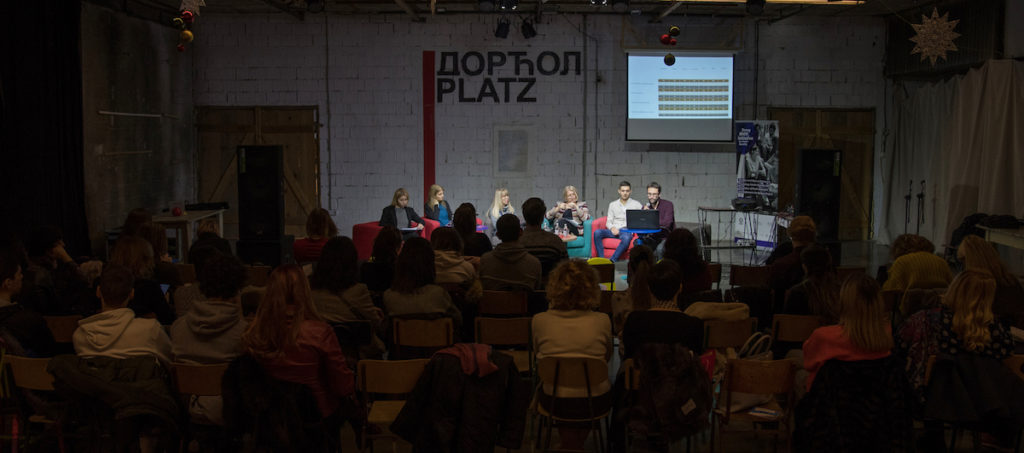
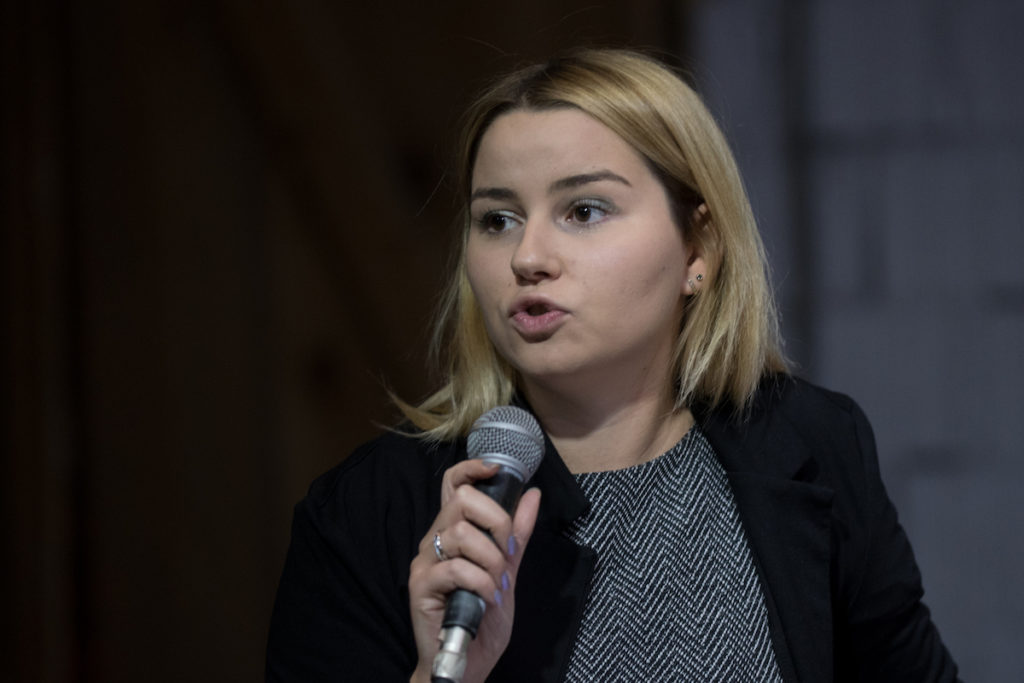
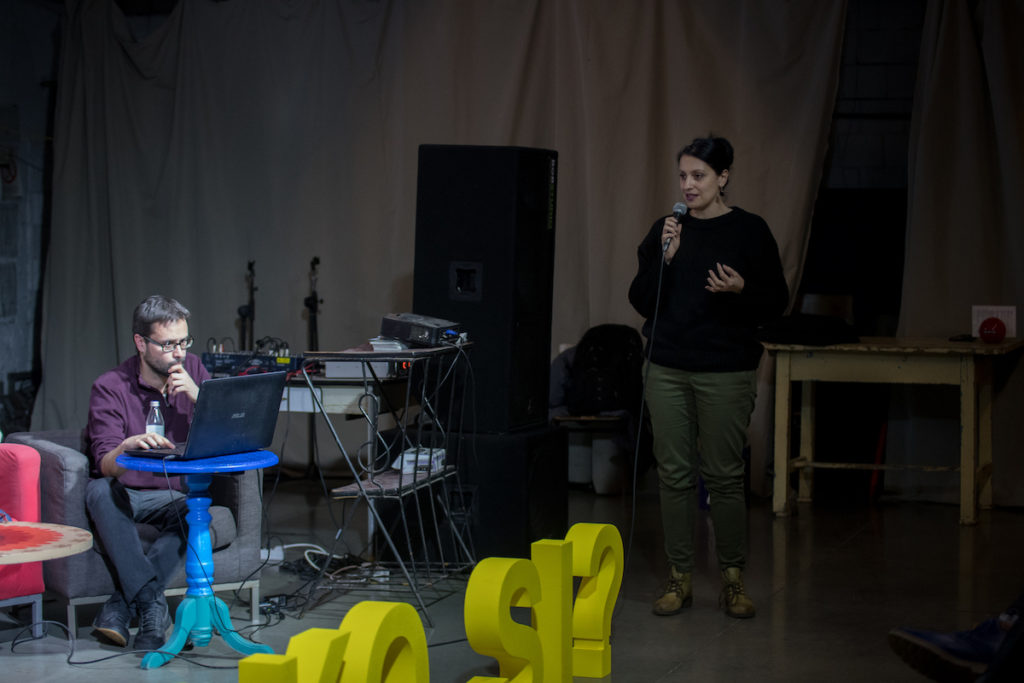






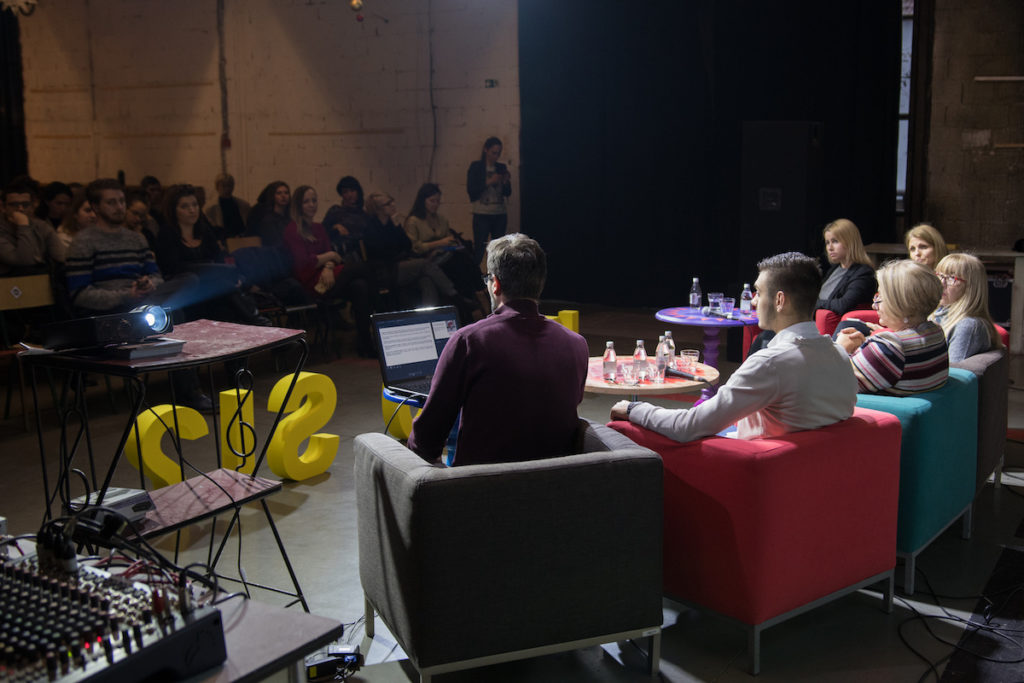

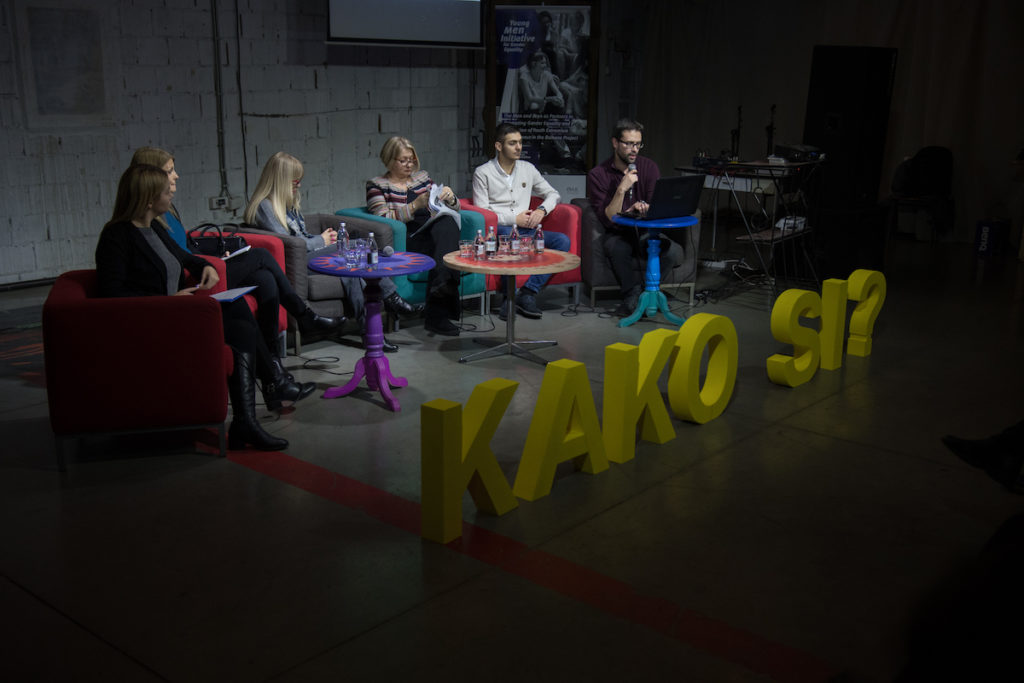

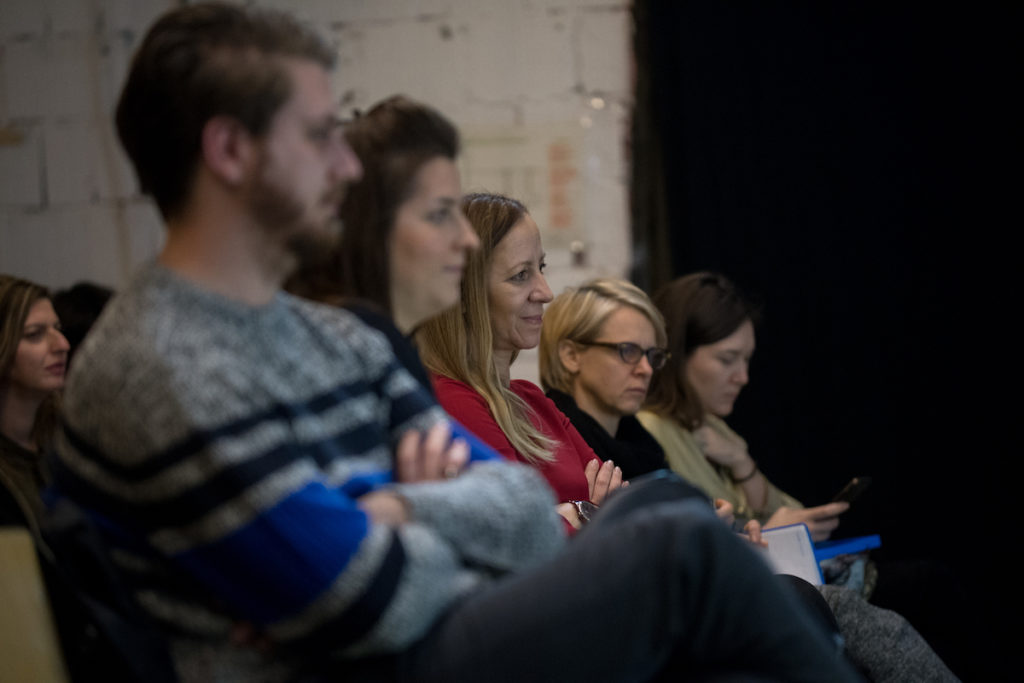

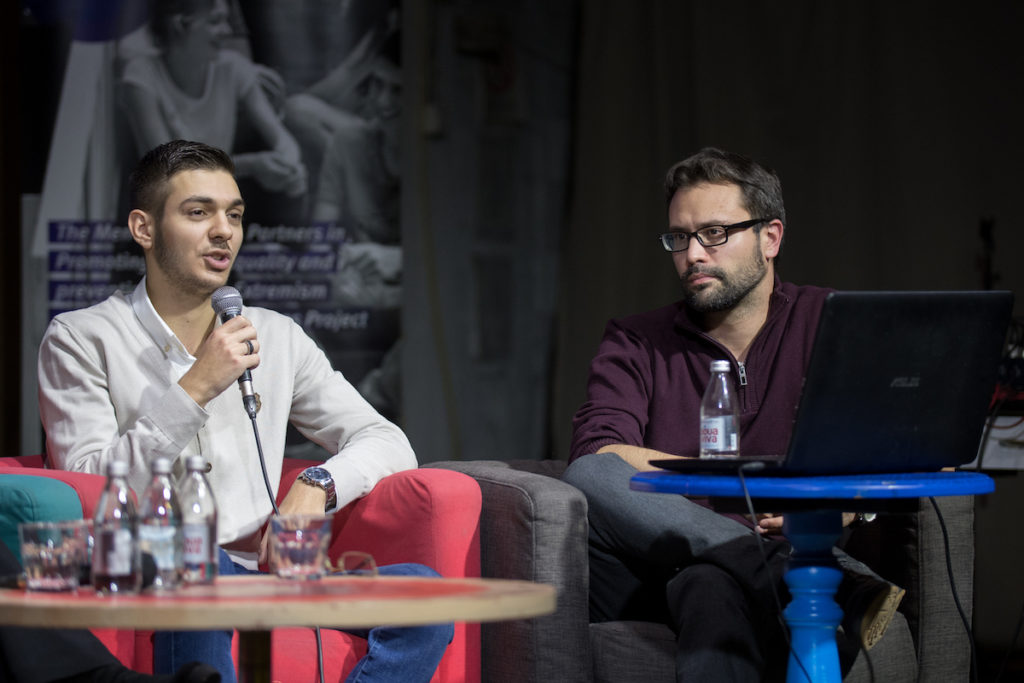
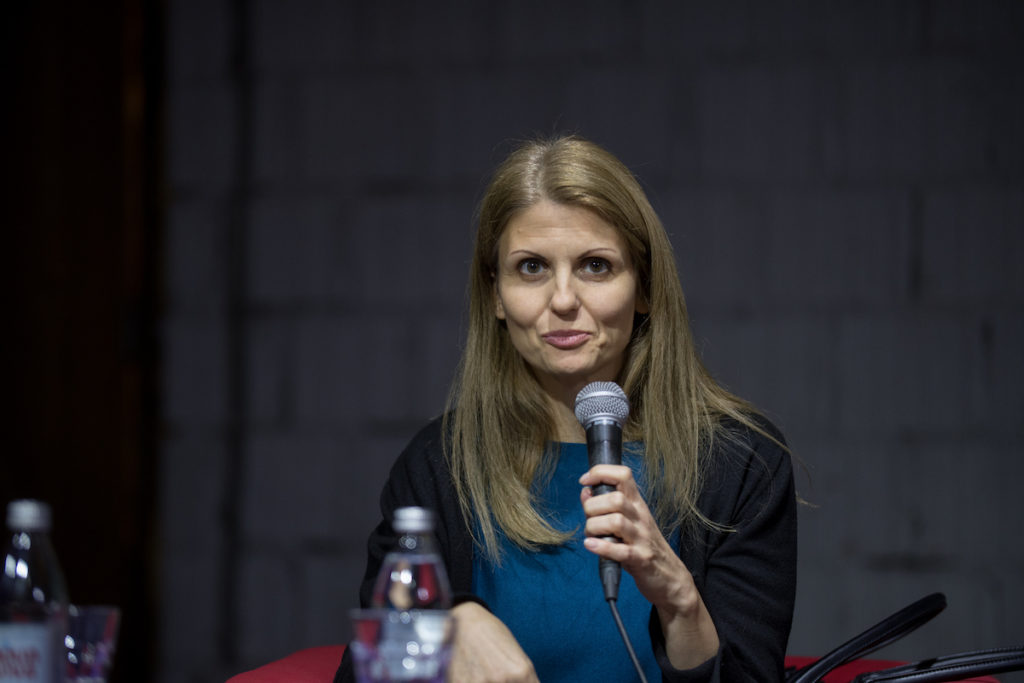
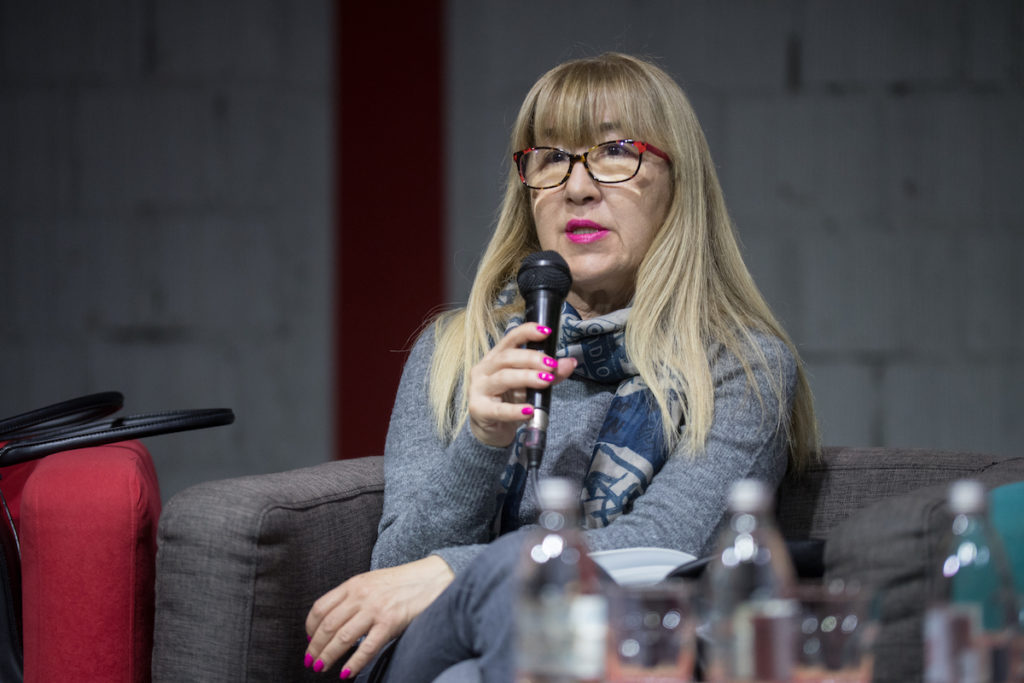
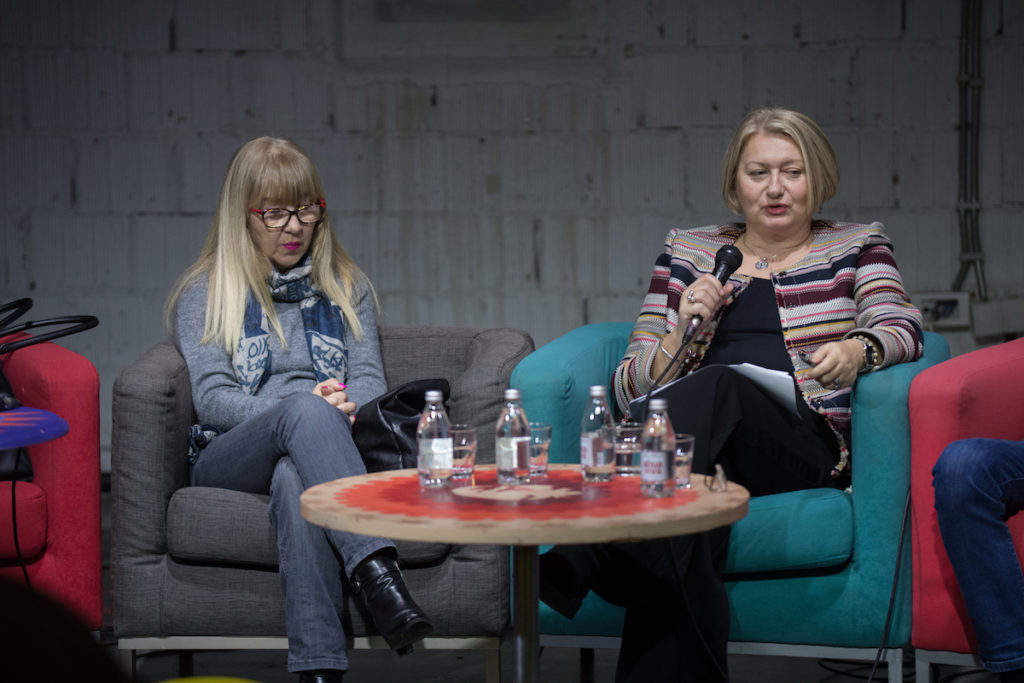
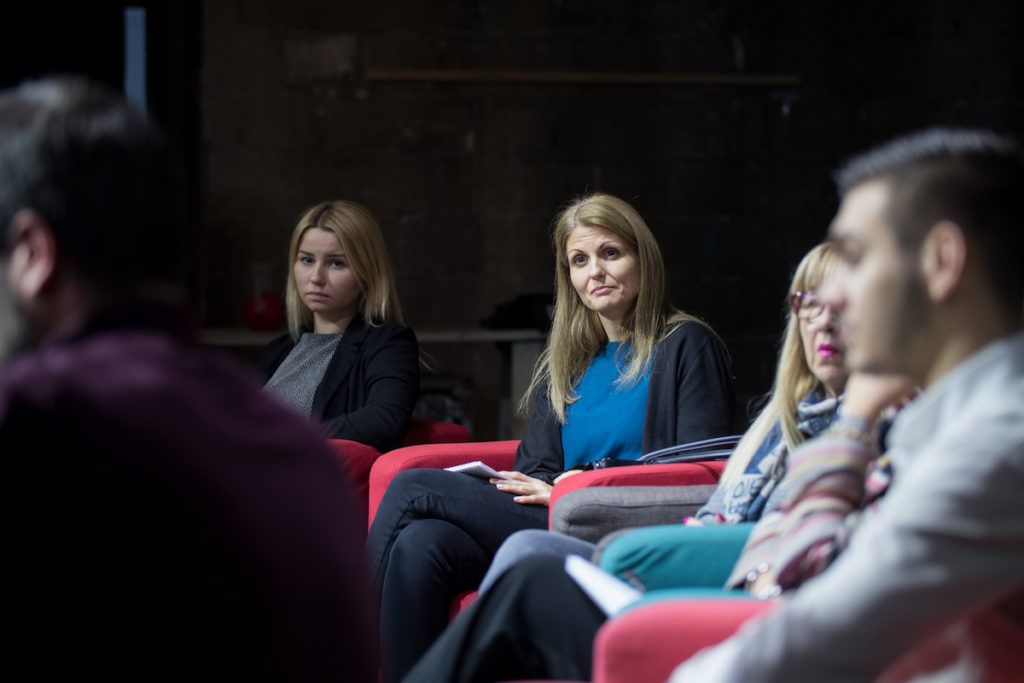
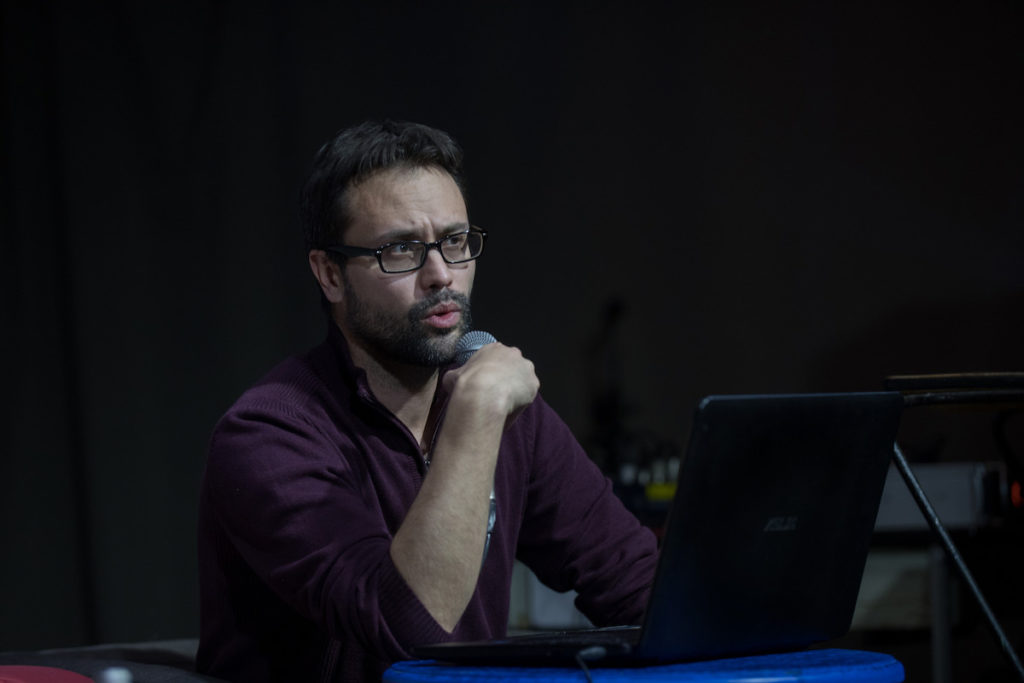
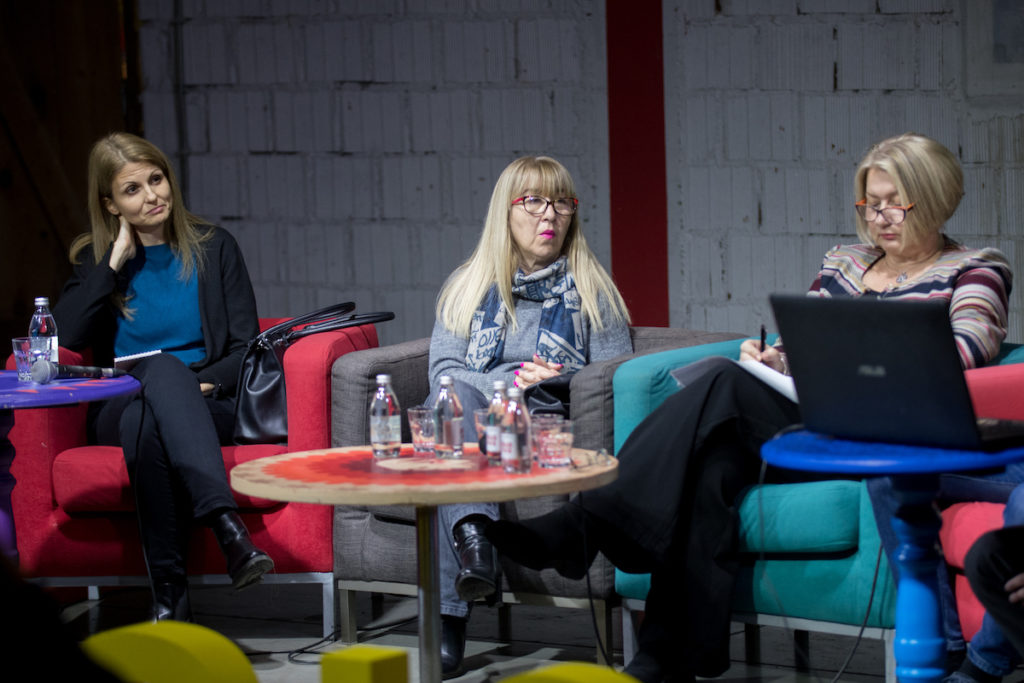
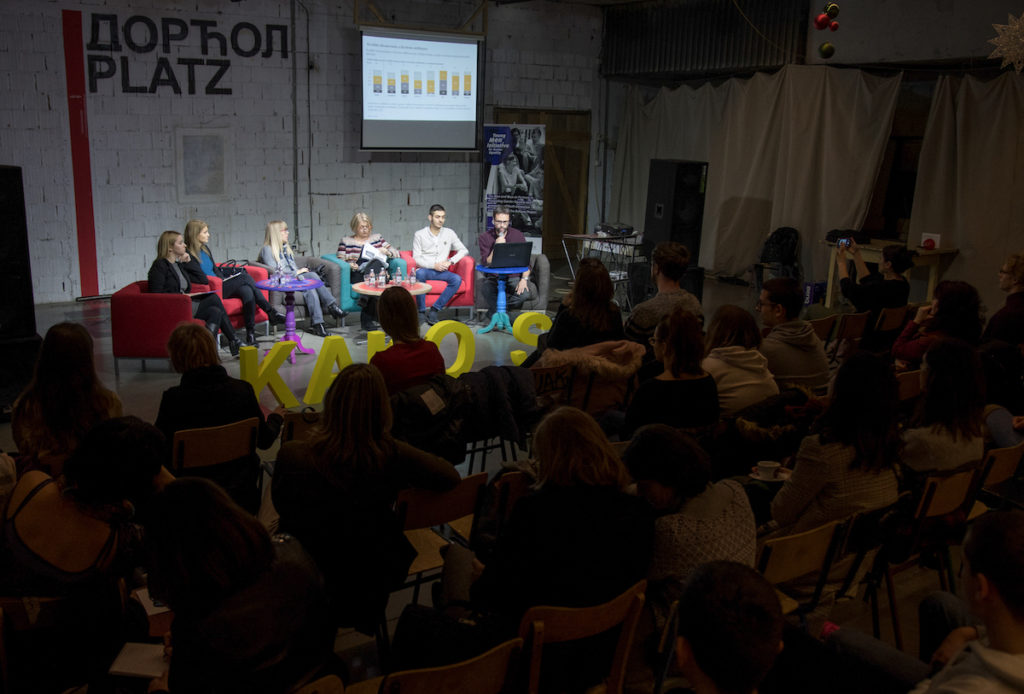
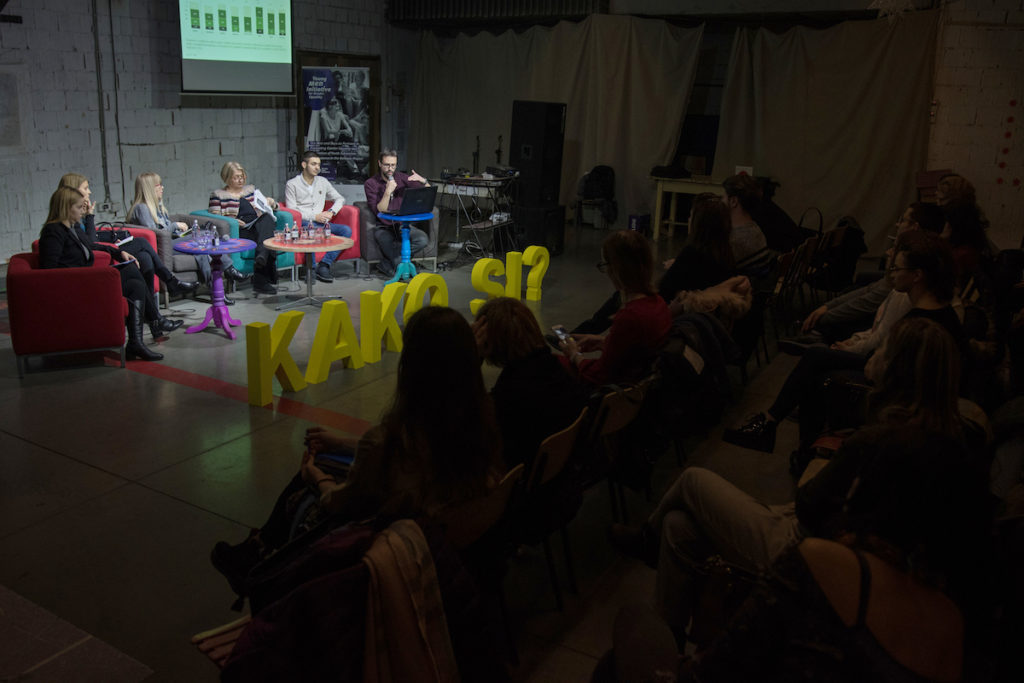
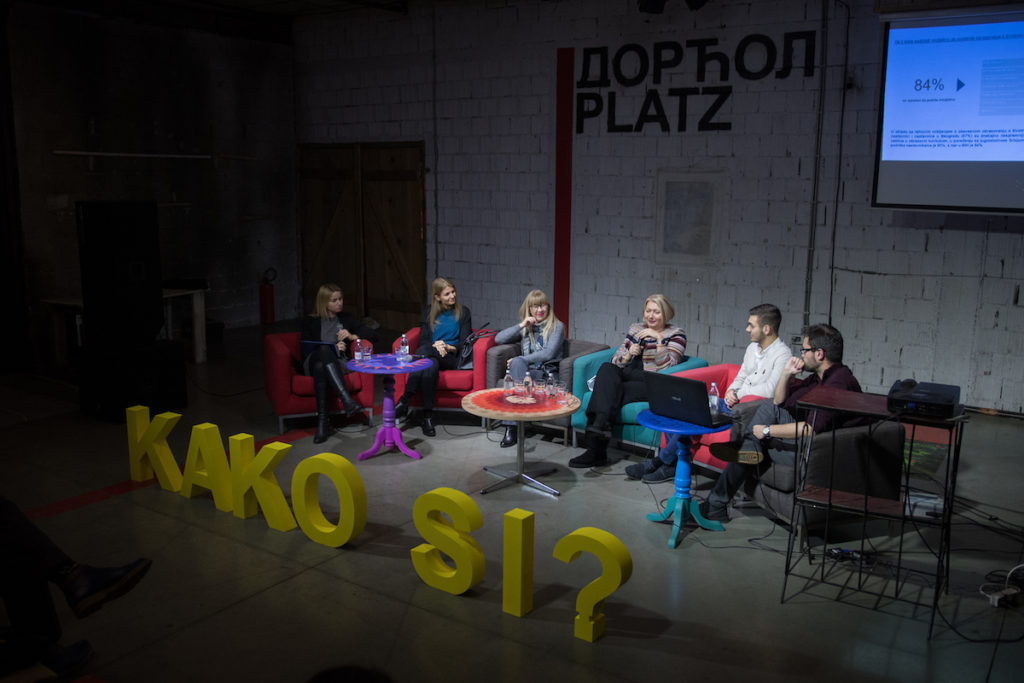
The panel was attended by Snežana Vuković, PhD, from the Ministry of Education, Science and Technological Development, who emphasized that her work, as well as the work of her colleagues, involves not only measures of intervention when violence already occurs, but also long-term work on protocols and procedures that make it easier for actors to identify risky situations and respond to prevent violence.
Marija Zornić, from St. Sava Grammar School and the Architectural Engineering High School, shared the experience of the collaboration between the Center E8 and the St. Sava Grammar School and spoke about the long-term benefits that teachers and students of the school have from the Program Y implemented by the Center E8.
Đina Đelmaš, from the Forum of Belgrade Grammar Schools, emphasized that it is also necessary to motivate parents, as an important pillar of education, to join the process in order to come to more effective solutions through joint efforts.
Đorđe Trbojević, a student and educator of the Center E8, spoke about the reasons for his involvement in the educational work as well as the experiences from the workshops he conducts at his school, which he has just completed this year.
The speakers shared their experiences in working on the prevention of violence, as well as in promoting life skills education.
Branko Birač, Program Manager of the Center E8 presented the results of a research conducted by telephone with 1100 respondents (high school students, teachers, parents, employees of public institutions, media representatives, NGO representatives, and employers) in Serbia, whose results, among other things, said that parents from rural areas were significantly more supportive of life skills education as an integral part of formal education than parents from urban areas and that Belgrade school teachers were less interested in introducing this education into the school system than teachers from other parts of Serbia (57% versus 90%, and up to 96% somewhere).
The panelists discussed with the audience the results of the research, identifying what particularly surprised them and what findings they expected. When asked why only 56% of young men consider gender equality an important topic, the participants agreed that boys need to be further motivated, among other things, by the education, various activities and methodology of Program Y. One of the most important conclusions was that responsibility for education and a safe and non-violent environment was on all actors – teachers, parents, institutions, students and non-governmental organizations.
The activities are organized within the project Young Men Initiative II: “Men and Boys as Partners in Promoting Gender Equality and Addressing Youth Extremism and Violence in the Western Balkans”, supported by CARE International Balkans, Austrian Development Cooperation and OAK Foundation.